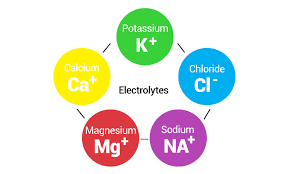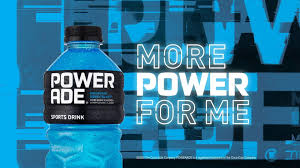Electrolytes are substances with a natural negative and positive electrical charge when dissolved in water. The main essential electrolytes in the body include potassium, calcium, sodium, Magnesium, Chloride, and Phosphate. Individuals may get their electrolytes by eating nutritious diets, mainly whole foods. Electrolytes help keep the body hydrated, regulate muscle contractions, balance the body’s pH and control the functioning of the nervous system. The health claim is meaningful as electrolyte imbalance can cause dehydration, muscular tiredness and impaired performance during physical exercise. The body may lose these electrolytes in various ways, such as through urine and sweat. Powerade food myth buster aims to investigate its health claims from ingredients.

Powerade Helps Replenish 4 Electrolytes Lost in Sweat
Powerade Company makes a bold statement on the bottle that it helps replenish four electrolytes lost in sweat. Although other sources can help replenish electrolytes, the claim is meaningful that drinking this beverage alone should help. There is no evidence that there have been scientific studies supporting this claim on the official Powerade website. However, the ingredients listed on the product can cause the claimed benefits to its consumer. The ingredients listed include calcium chlorides, magnesium, and mono-potassium phosphates.
Some primary sources have contradicted the claims of the need for sports drinks. Conclusions have been made from secondary sources that sports drinks are “unnecessary for most gym-goers (Tinsley 3). If one is involved in performing weight training, they do not need to use sports drinks even if they spend more than an hour in the gym. Sports drinks can benefit athletes who engage in intense or long training sessions.
More Power for Me

Water and electrolytes are lost in sweat during athletics, and it is important to replace them, especially during long-duration exercises. Sports drinks are designed to provide these main ingredients to improve exercise performance. Sports drinks promise to replenish electrolytes in the body (Sepriani 952). However, they contain a high amount of sugar consumption, which results in sugar levels in the blood spiking. The sugar in the sports drinks causing blood sugar elevation may be bad for health, especially for individuals with diabetes.
Elevation of blood sugars has been associated with increased inflammation and oxidative stress, which are the main causes of many chronic illnesses. Even individuals without diabetes need to be concerned about the sugar in sports drinks. Drinking one or two sugar-sweetened beverages daily was correlated with a 26% higher risk of type 2 diabetes (Audain et al. 500). Sports drinks are designed to “power” up the athletes; however, consuming too much sugar might lead to an energy slump, leading to obesity and overweight issues. Electrolytes can be found in Powerade; however, the high sugar content goes against the main objective, providing strength and energy. I would purchase Powerade when being involved with vigorous exercises. To conclude, Powerade does not state a false health claim as the ingredients listed on the product can cause the stated health benefits.
Works Cited
Audain, Keiron, Louis Levy, and Basma Ellahi. “Sugar-sweetened Beverage Consumption in the Early Years and Implications for Type-2 Diabetes: A Sub-Saharan Africa Context.” Proceedings of the Nutrition Society, vol. 78, no. 104, 2019, pp. 547-553.
Sepriani, Rika. “Effects of Isotonic Drinks Towards Students’ Aerobic Endurance.” Proceedings of the 1st Progress in Social Science, Humanities and Education Research Symposium (PSSHERS 2019). Atlantis Press, 2020.
Tinsley, Grant. “Sports Drinks: Should You Drink Them Instead of Water?” Healthline, Web.